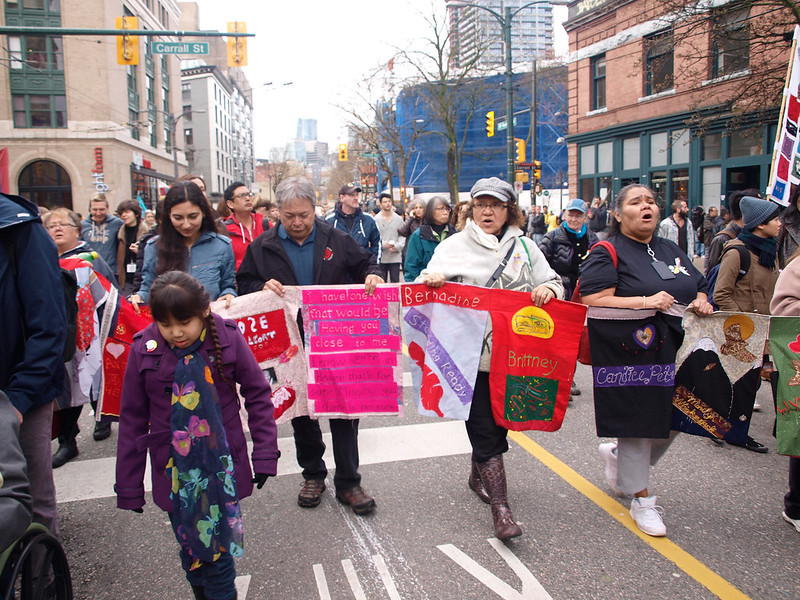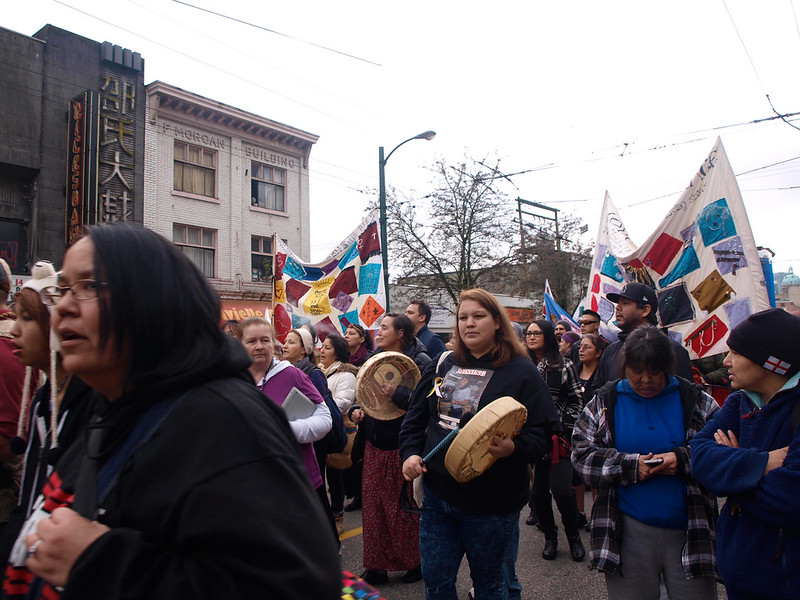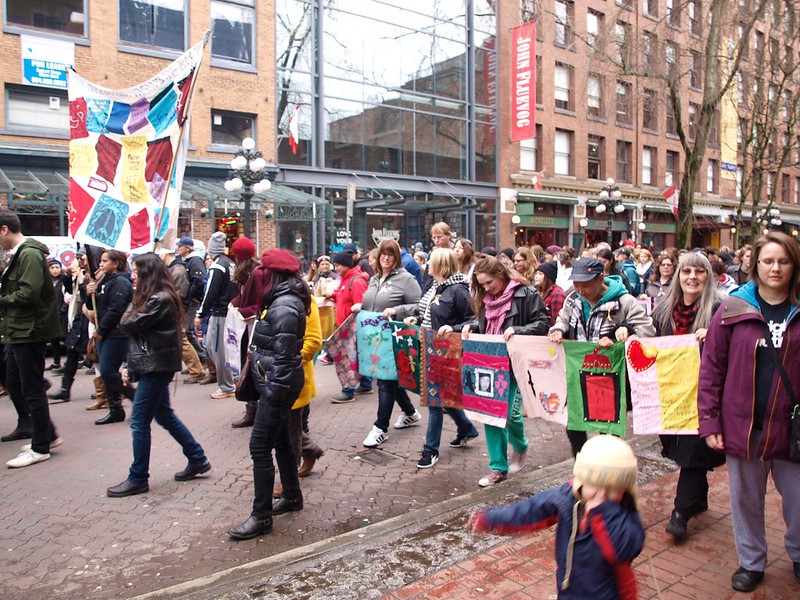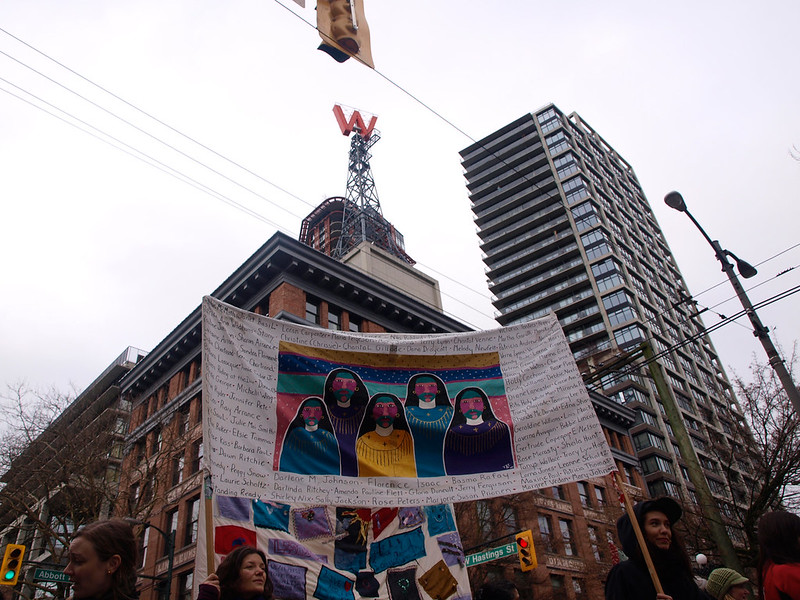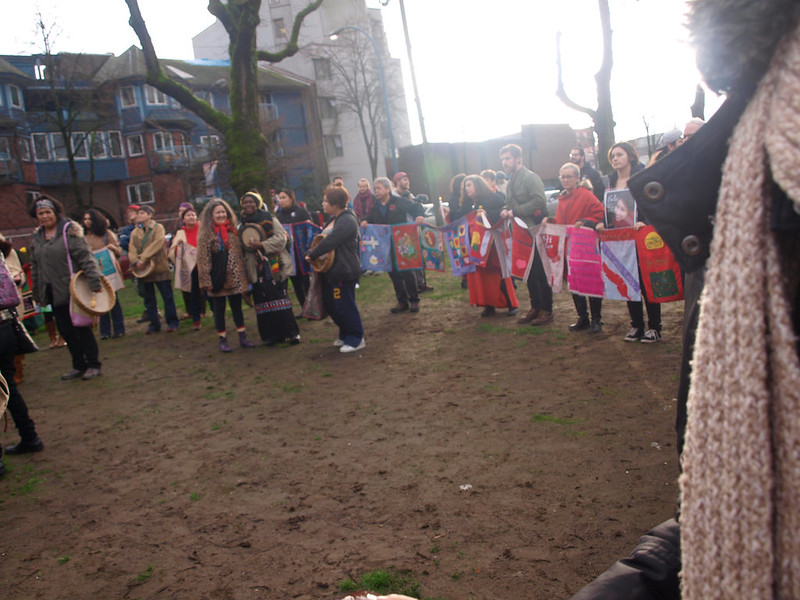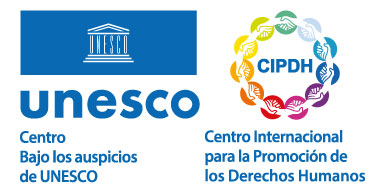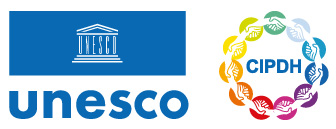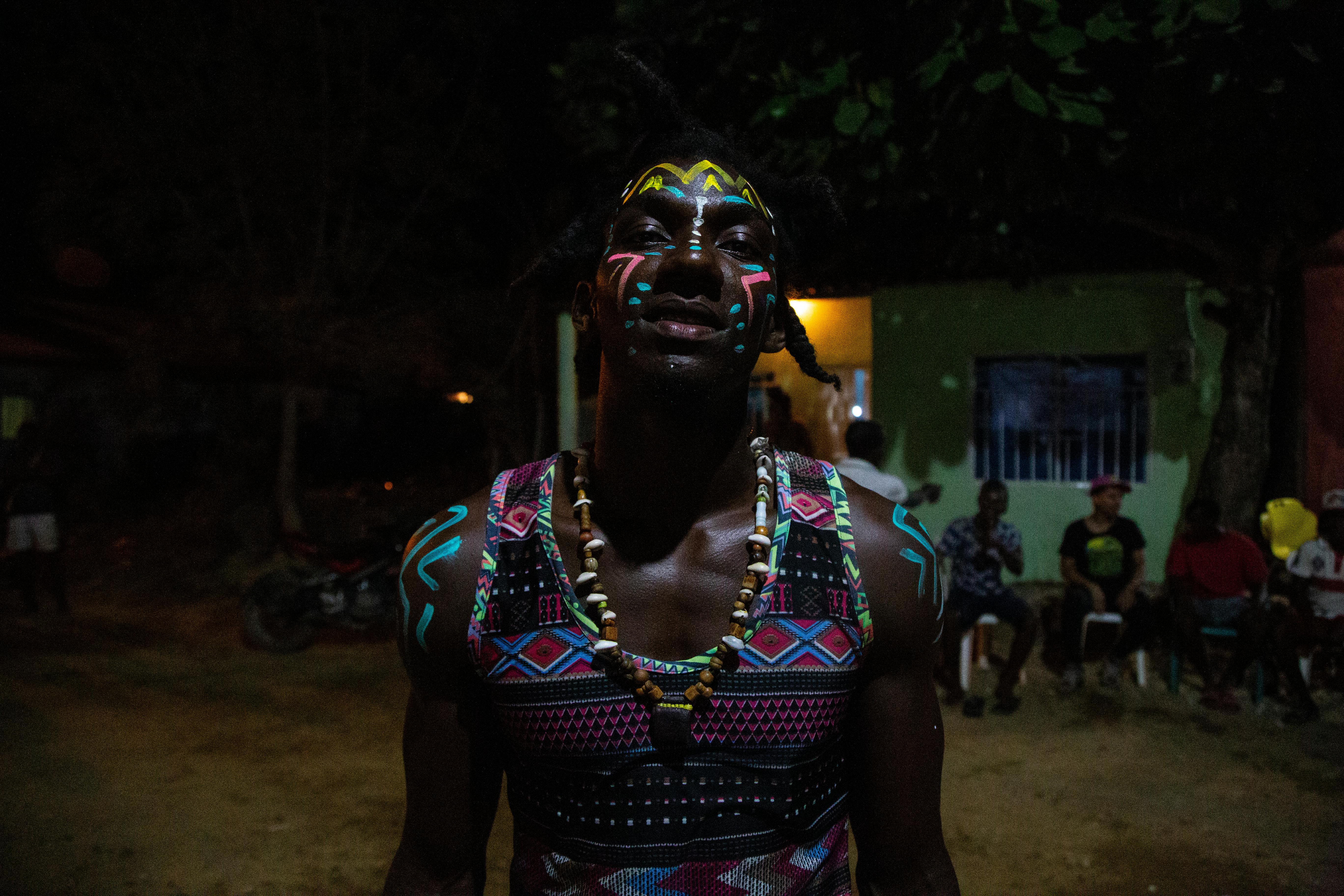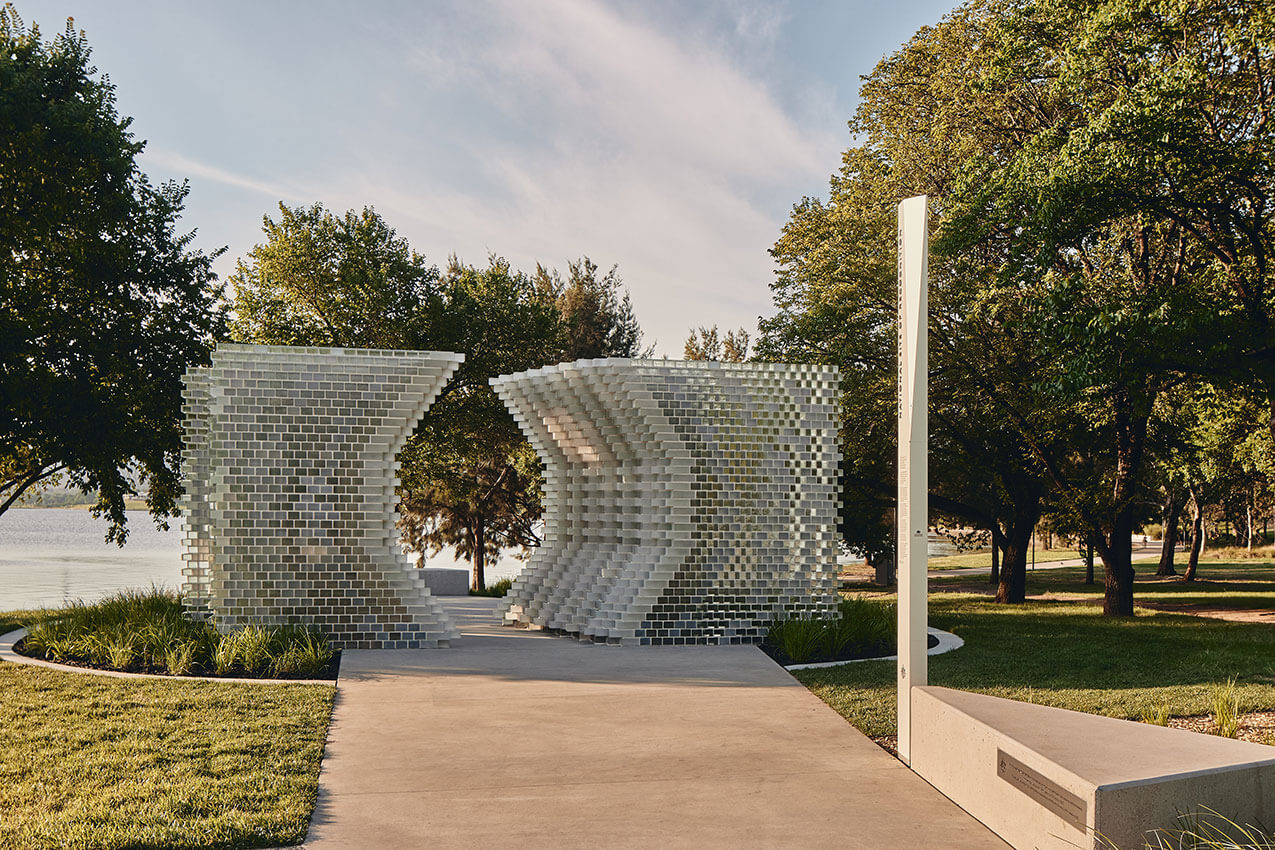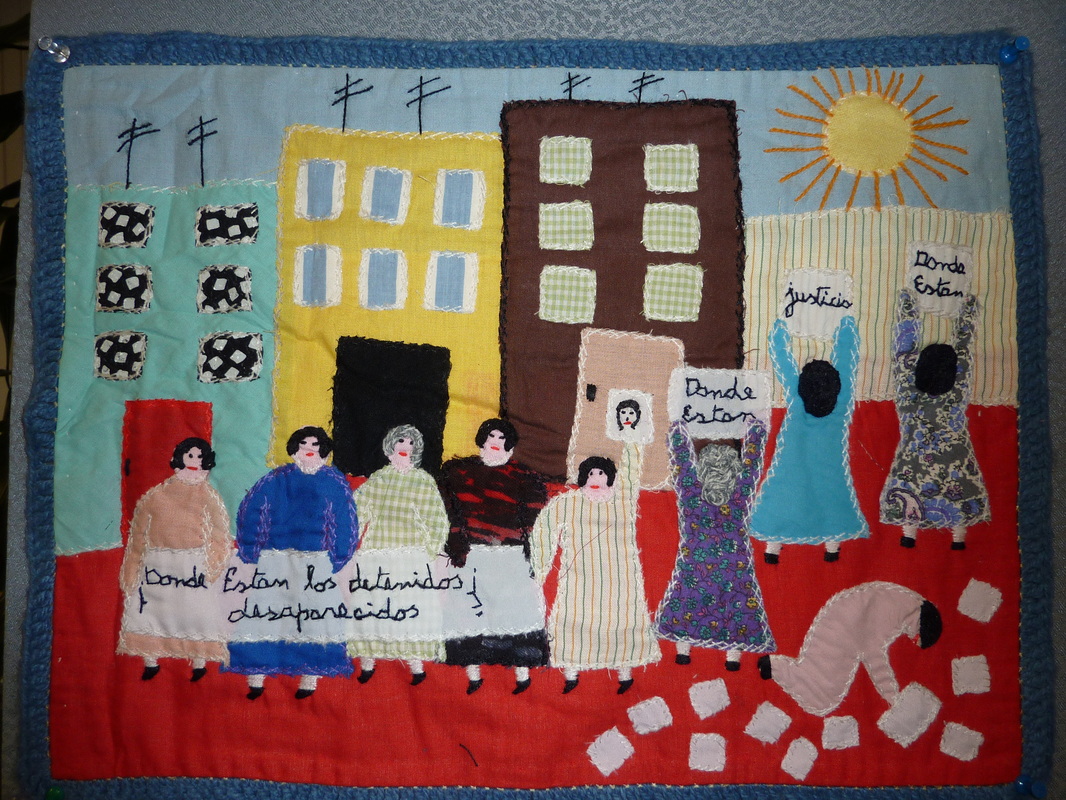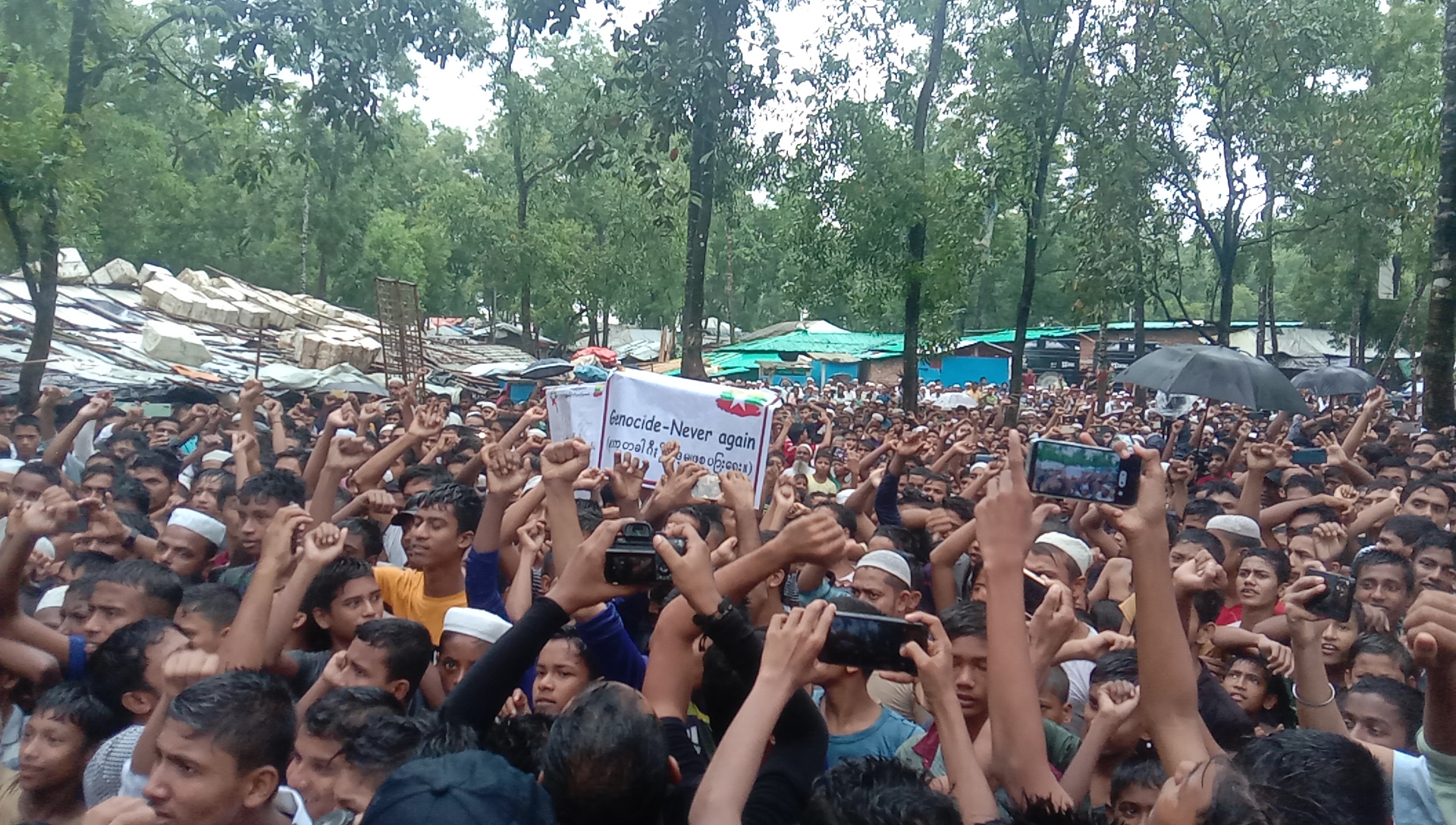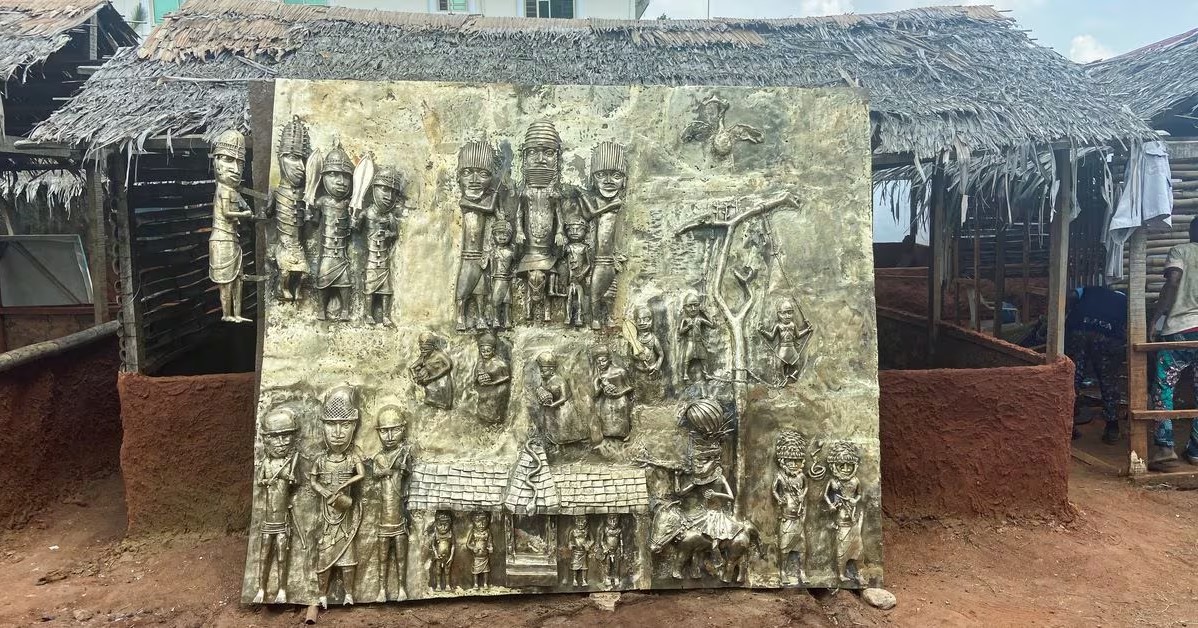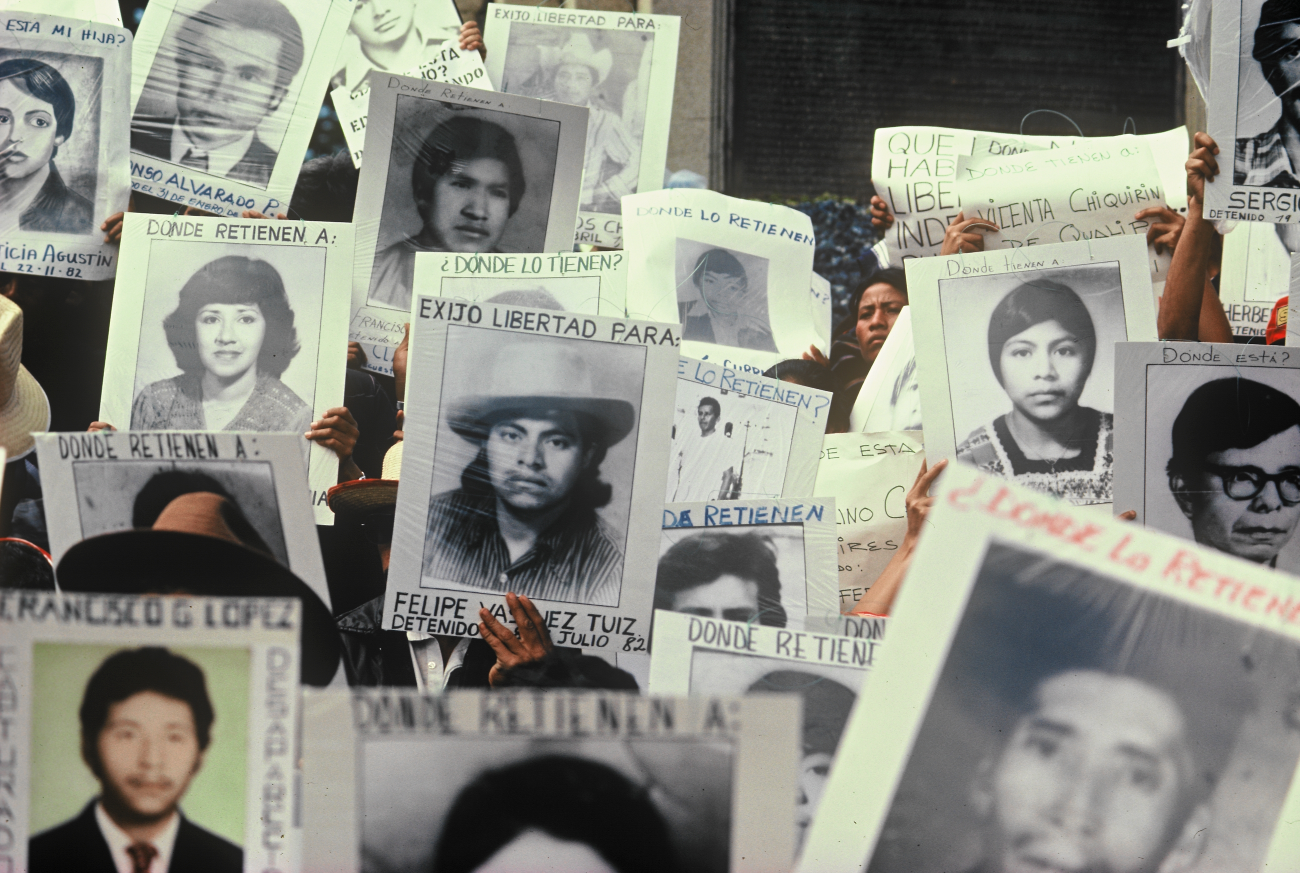February 14th Women’s Memorial March
Intangible
Theme: Genocide and/or Mass Crimes

Address
Carnegie Community Centre, 401 Main Street
Country
Canada
City
Vancouver
Continent
America
Theme: Genocide and/or Mass Crimes
Purpose of Memory
To honor women who have been murdered and have gone missing in Vancouver since 1980.
Known Designation
February 14th Women's Memorial March
Date of creation / identification / declaration
1992
Public Access
Free
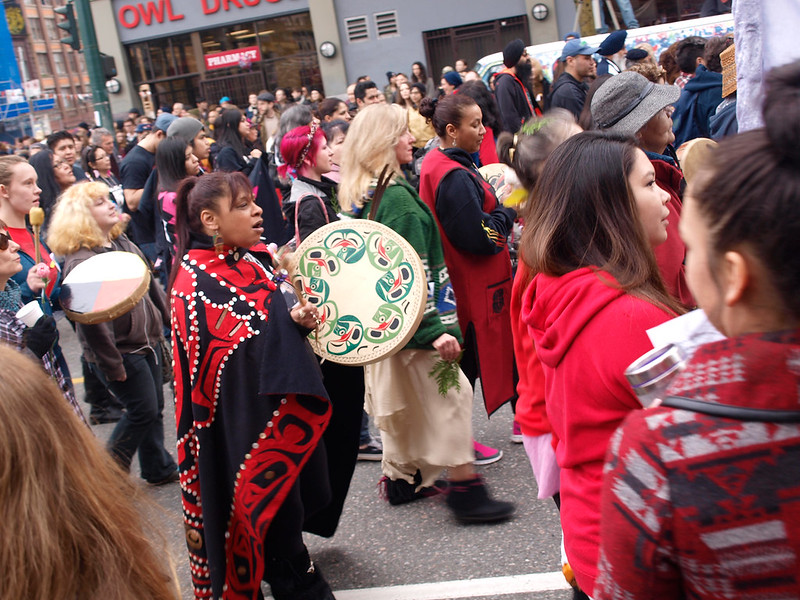
Location description
Every 14 February, in the city of Vancouver, located in the Canadian province of British Columbia, a mass march is organized to honor the women who have been murdered and have gone missing in that area since 1980. The event starts at 10:30 a.m. at the Carnegie Community Center building, located at 401 Main Street, where the relatives of the victims meet with activists of women’s rights organizations. The march begins at noon and goes along the streets of the Downtown Eastside stopping at the places where women were murdered or were last seen before going missing. The people taking part observe a minute of silence and offer prayers and roses in their honor. Then, activists give speeches to honor the victims.
The violence suffered by Indigenous peoples in Canada originated in the historical discrimination pattern present in the country’s colonial times. The British campaign to conquer Canada ended in 1763 when France transferred to Great Britain the territories under its control by virtue of the Treaty of Paris. Great Britain decided to establish a legal and educational unity in the country and started with a cultural assimilation and homogenization process.
The Indian Act was a federal regulation passed in 1876 that set forth the standards that a person had to meet in order to be considered an Indian by the Government. Said Act affected the culture of Indigenous peoples due to the fact that it limited their rights and interfered in their internal affairs. Within this framework, Indigenous women were more vulnerable and liable to have the condition of Indigenous taken from them and not be allowed to live in their communities (for example, they were no longer Indigenous if they married a non-Indigenous person).
Nowadays, Indigenous peoples (the Innu, Cree, Abenaki, Mohawk and Atikamekw communities) represent 4.6% of the total population of the country. However, civil society organizations claim that the rate of murders of women who belong to native groups is higher than that of the rest of Canadian women.
In 2013, the Interamerican Commission of Human Rights carried out a work visit to Canada and subsequently published a report stating its concern related to the rates of missing and murdered Indigenous women in British Columbia. The Government acknowledged that the official figures on the amount of Indigenous women who were victims of femicide were not realistic and created the National Inquiry into Missing and Murdered Indigenous Women. The final report published in 2019 stated that, in the country, a genocide against Indigenous women, girls and the LGBTIQ community (lesbians, gays, transgender, bisexual and queer) had been committed within the framework of colonialist practices and that it had occurred due to the failure of the State to prevent it. Canadian Prime Minister, Justin Trudeau, acknowledged the conclusions of the Inquiry Commission and promised to take government action to put an end to violence against Indigenous women.
In the province of British Columbia, the highest figures of femicides were registered when compared to the rest of the country, especially in the Downtown East Side, an area of central Vancouver. In January 1992, a young Indigenous woman was brutally murdered and her body was found mutilated in Powell Street, east of Vancouver. The crime caused great shock to society and resulted in the spontaneous creation of a Committee that planned a march for Saint Valentine’s day (also known as the Day of the Lovers) to claim for justice for the femicide. Since 1992, the February 14th Memorial March Committee organizes every year a demonstration to honor all women who have been murdered and have gone missing in the Downtown East Side, and to claim for justice for such murders. The organization of the march became stronger from the moment the Native Women’s Association of Canada decided to participate. The organizing committee asks for participants not to take their political banners during the march in order to be respectful of the sorrow of the victims’ relatives. Several stops are made where the victims were last seen or found and, in the afternoon, the march returns to its starting point and speeches are given, healing circles are held and music is played.
The February 14th Memorial March is already organized in more than twenty cities in Canada and the United States of America, such as Ottawa, Toronto, Montreal, Denver and Minneapolis.
In Vancouver there are other sites to honor the memory of murdered women. At Thornton Park, just across the bus terminal, there is a space called Marker of Change where there are fourteen benches forming a circle, and each bench bears the name of one of the women murdered in a massacre that occurred in Montreal on 6 December 1989.
